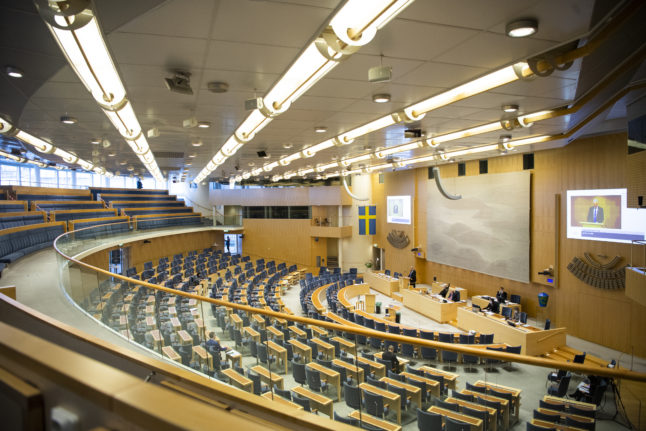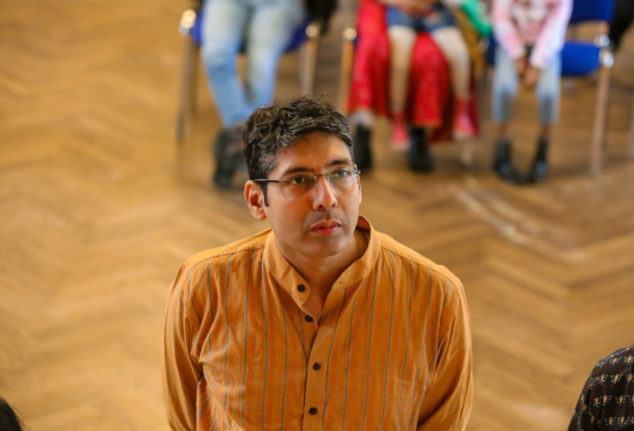The Social Democrats
As Sweden’s ruling party, the left-wing Social Democrats’ position is the most clear. In their first work permit reforms, which came into effect on June 1st, they introduced a new talent visa for certain highly-educated workers, as well as a new rule stating that work permit applicants must have a signed work contract in order for their application to be accepted.
Aside from these reforms, they have also called for a reintroduction of arbetsmarknadsprövning – a system scrapped in 2008 where prospective labour migrants wanting to work in Sweden would only have their work permits approved if they were filling a position where there is a national shortage. If this were to be approved, work permits would be dependent on unions, employers, and authorities confirming that they lack workers in the profession in question.
Social Democrat migration minister Morgan Johansson, has previously stated that reintroducing arbetsmarknadsprövning is the “only way” to clean up the system.
In addition to this, the Social Democrats announced plans to propose raising the salary threshold for work permits from the current 13,000 kronor limit to around 27,000 kronor, although the final figure will be decided following negotiations in parliament.
The Moderates
The right-wing Moderates do not want to reintroduce arbetsmarknadsprövning or the requirements suggested by the Social Democrats, but suggest instead that the should be a lower salary threshold should be raised to 27,540 kronor per month, which is 85 percent of the average Swedish salary (32,000 kronor per month). Seasonal workers such as berry pickers would be exempt from this requirement.
The Christian Democrats
The Christian Democrats want to see this lower limit raised to 35,000 kronor (they had previously stated that it should be 30,000 kronor), with exceptions for professions facing a shortage of staff, such as seasonal workers and certain healthcare staff.
In addition to this, both the Moderates and the Christian Democrats pushed for the new requirement which came in in June for workers to have to financially support any family members who accompany them to Sweden, as well as banning labour migration for personal assistants.
Their argument is that low-salaried jobs should be filled by unemployed people already in Sweden, rather than by bringing in workers from abroad. They also believe that it will make it harder for people to abuse the system.
The Sweden Democrats
The Sweden Democrats have previously proposed introducing a 35,000 kronor salary limit, alongside the Christian Democrats. This proposal suggested the reintroduction of arbetsmarknadsprövning for anyone earning under 35,000 kronor, with free labour migration over that figure.
The Centre Party
The Centre Party describes itself as “one of few parties in the Swedish parliament who protect the current system”, stating that it believes that individual companies know best when it comes to the kind of skills they need.
The party are against both arbetsmarknadsprövning and the introduction of a higher salary threshold, believing that introducing both policies would lead to a national skills shortage in Sweden.
The Liberals
The Liberals, like the Centre Party, are positive towards the current work permit system and are not in favour of increasing the salary threshold for work permit applicants. Similarly, they – like the Centre Party – do not want to stop labour migration for personal assistants.
The Liberals also believe that foreign students in Sweden should automatically be given a one-year residence permit after finishing their studies in order to look for work in the country.
The Green Party
The Greens have previously stated to Arbetet magazine that they “are not entirely against raising the 13,000 kronor salary threshold somewhat”, but that it must still be possible for those here on a work permit to, for example, work part-time alongside their studies.
They are not in favour of reintroducing arbetsmarknadsprövning, as they believe that employers should decide which skills they need rather than the state.
The Left Party
The Left Party is in favour of reintroducing arbetsmarknadsprövning as well as a requirement that immigrants coming to Sweden on a work permit must work full-time.
The Left Party does not want to introduce a requirement that workers must be able to support their families, and are against proposals to introduce a 35,000 kronor minimum salary for work permits.





 Please whitelist us to continue reading.
Please whitelist us to continue reading.
Hello.
I have a question.
Does the new work permit law, affect both EU and non-EU new employees?
Thank you in advance.